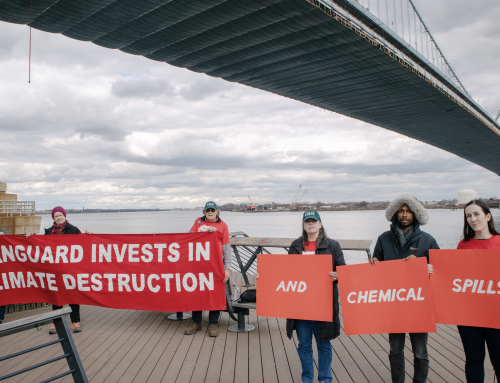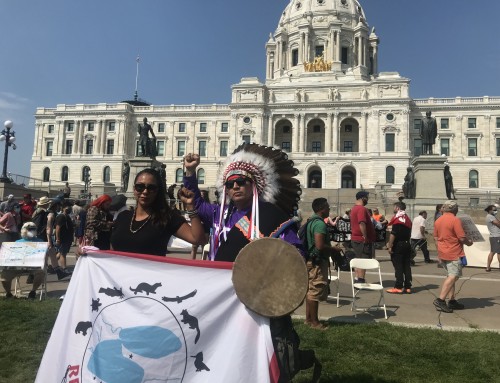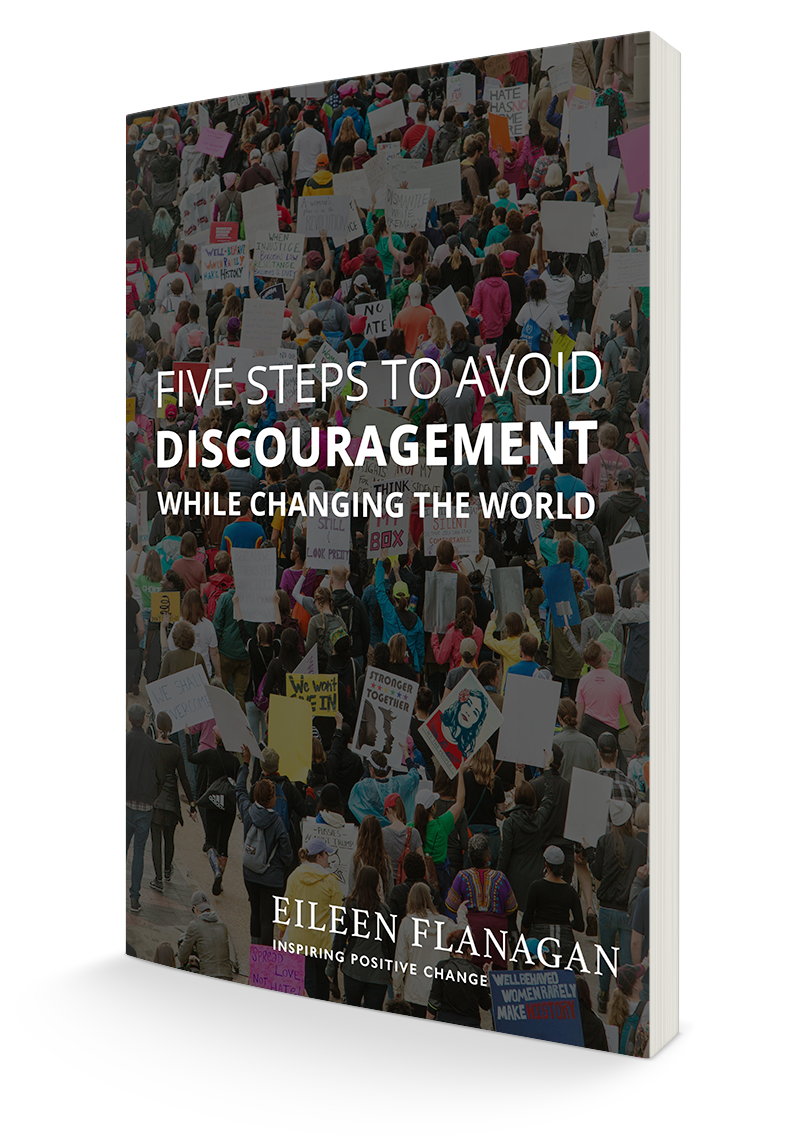Let me just say up front that I am not one of those people who feel all joyful and clearheaded when they’re fasting. The first time I fasted, a few months ago, I was looking at the gummy bear vitamins by 7am, wondering if eating a handful would be cheating. I had decided to fast one day a week before my civil disobedience in February because it felt like I was stepping into a deeper commitment to activism, one that would require sacrifice, and I needed some spiritual preparation. Still, I was nervous about giving up food entirely, so I allowed myself juice and fruit shakes. In fact I spent $5 a pop on the raw vegetable combos available at my local juice bar. I felt noble and healthy, but not very frugal and only moderately deprived.
This time I’m doing two days with only water as part of Earth Quaker Action Team’s 40-day fast. Again spiritual preparation is part of the purpose. EQAT is planning to escalate our campaign to get PNC Bank to stop financing mountaintop removal coal mining, and we want to be grounded. Some of us have also articulated a desire to model sacrifice because transitioning to a society not dependant on fossil fuels is going to require sacrifice, something our culture doesn’t exactly promote. I understand this reasoning and am trying to live into it. For me, the way to do that is to remember that climate change is already causing hunger.
Although it is always tricky to blame a particular weather event on climate change, the patterns are clear, and many scientists believe that climate change has already contributed to drought and resulting famine. There are many reports. Here’s just one quote summarizing a study by the International Food Policy Research Institute: “Most severely affected will be the wheat-growing regions of South Asia, Europe and Central Asia, and sub-Saharan Africa, where production is projected to decline by 46, 47, and 35 percent, respectively. Also under threat are Middle Eastern rice paddies, where production is expected to fall by 36 percent.” Another article I read a few months ago talked about the number of families in a few different African countries who can’t afford food every day because of rising maize prices, so they were skipping food one day a week.
When I thought of such people yesterday as I was craving a snack, I told myself for a moment that it might be easier to go without food if you really didn’t have a choice, if there wasn’t food all around you all day long, like the delicious-looking guacamole my son made when he got home from school. I felt sorry for myself for a quick minute then remembered all the reasons skipping a day or two of food is much easier for me. For one thing, I don’t have to watch my children go hungry, which I’m sure is the most painful part of dire poverty. I also have plenty of stored fat from which to draw energy and a work life that I can adapt when I have less energy. I don’t need to go plow the fields on an empty stomach, hoping things will be better next year.
When I come back to EQAT’s reason for fasting as a group and wonder how our sacrifice relates to our allies in Appalachia, I think of the high cancer rates caused by mountaintop removal. I think of people who lose not just their appetites, but their lives and find this experience of deprivation a good reminder of all I take for granted.
The previous times I’ve fasted, I had a hard time remembering that it was meant to be done prayerfully, but this time I’m trying to remember. My prayer is for transformation, for myself, my organization, and the people suffering most directly from environmental destruction. Knowing that there are people praying for me, as well as others fasting on the same day, is the main thing keeping me from sneaking a snack right now. Experiencing hunger, if only for two days, reminds me of my deep interconnectedness with other people and the earth, which sustains us all.






Leave A Comment